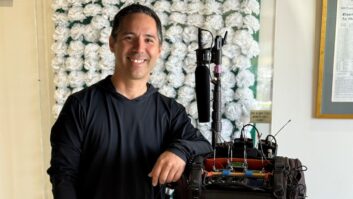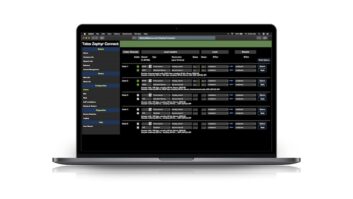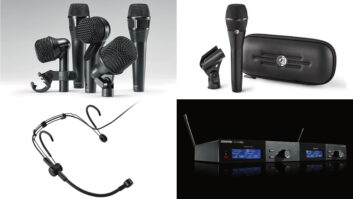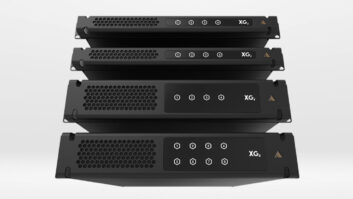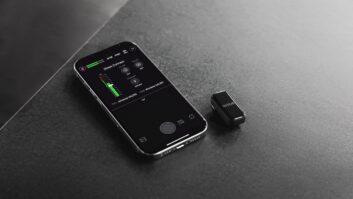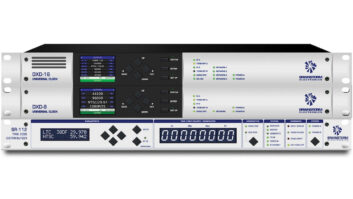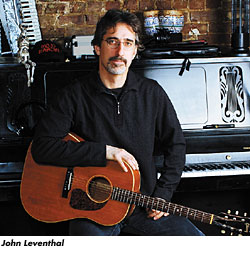
Like the beginning of a classic Dickens novel, the past few yearshave been the best of times and the worst of times for Rosanne Cash.She gave birth to a son (best), lost her voice due to apregnancy-related polyp on her vocal cords (worst), wrote and recordednew songs (best), had to shelve the project while waiting for her voiceto return (worst), finally released her brilliant new album, Rulesof Travel (best), and, because she has spoken out against the warin Iraq, is receiving hate mail and is the target of a campaign toboycott her records. You can guess which category that falls under.
Rules of Travel, which pairs her with her father, JohnnyCash, on one of her compositions, “September When ItComes,” is the culmination of lessons learned. “When I lookat the album now, I see that it’s all about loss and recovery,”she says. “It will always represent the period in my life when Ihad my son — a beautiful, life-changing experience and part ofthe recovery process — and the loss and recovery of both my voiceand this record — not knowing if I would get my voice back orwhether these songs would be lost — and realizing that my parentswon’t be here forever. So it was a circle for me. Everything becamemore precious because it is finite, and I feel incredibly grateful forthe things I have.”
Cash’s partner, in music and in life, isproducer/songwriter/multi-instrumentalist John Leventhal. They havebeen making records together since her 1993 album, The Wheel,and have grown as a songwriting and recording team. “We’redefinitely better at it,” she says. “We used to take ourpersonal stuff into the studio and work it out at $250 an hour; howstupid could that be? Also, we’ve developed respect for each other’sstyles. I focus in bursts, and he focuses for 10 hours straight withoutlooking up. It’s a lot more fun now: We’re relaxed as a couple, andcreating something together can be very romantic.
“We have very different strengths, and that’s the key toworking well together. He has a much wider musical palette, in that ifhe wants to create something, he has the ability to find it quickly. Idon’t hear voicings and arrangements and sonics, and I’ve learned toget out of his way, although everything is open to discussion. Someonerecently described John as a sonic sculptor, and that’s very apt. He’salso very intense, and if he’s going to spend eight hours on a guitarpart, I’m not going to stick around. I’ll check back in a fewhours!”
Leventhal’s production discography reads like a who’s who ofsinger/songwriters: Joan Osborne, Shawn Colvin, Marc Cohn, RodneyCrowell, Jim Lauderdale, Kelly Willis, new tracks with MichelleBranch…the list goes on. Try to pinpoint what makes him good athis craft, however, and he responds, “I have no idea. I’m noteven sure I am a good producer. [Rules Of Travel] is my best sofar, because I distilled a lot of my ideas to their simplest form. I’venever thought about it. I think I’m a fairly musical guy with a goodarranging sense, and I think I have a sensitivity to what songs aretrying to put across. It’s not just about gear and compressing anddrums. My theory is that most musicians try to tap into that adolescentfeeling of what music did to you when you responded viscerally anddidn’t understand why. I think I can still tap into that part of mypsyche.
“Being a musician and songwriter are huge for me, but you canbe a good producer without being either,” he continues.“There are all sorts of different ways to come at this thing, andhowever you get to it is great. It can’t help but enhance and help youto have a fundamental knowledge of music. Gear and compressors andmiking the amps — to me, that’s the least interesting part. Iunderstand the seduction of sonic manipulation, but the song is so muchmore important. If you hear a singer sing a great song they sang into aShure 57, you don’t care as long as the music is great. Don’t get mewrong: I like that stuff, and I like making great-sounding records, butthere is an incredible amount of emphasis on that. When I first startedmaking records, I knew nothing about gear. Now, I probably know toomuch about it. We all work on a lot of different levels, and you wantyour peers to appreciate what you do, as well as your non-peers. Ifother record-makers like my records, that’s great; but at the sametime, I want someone who doesn’t know anything about making records tolike them, too.”
In keeping with that theory, Cash and Leventhal kept things assimple as possible while making Rules of Travel. That is,between the original sessions and the final ones that took placetwo-and-a-half years later when she regained her voice. “Irecorded at the three New York studios I use,” Leventhal says.“Sear Sound, where we tracked rhythm sections, 12th StreetStudios, which is my studio, and New York Noise. I engineered with TomSchick, who worked with me on Shawn Colvin’s last record. RogerMoutenout mixed at Allaire Studios. I played a lot of the instrumentson it: guitar, keyboard, a good portion of the bass and drums on atleast one song. That tends to happen when I map out parts, and in myspontaneous ineptitude they have a vibe and I say, ‘Let’s keepit.’ I try to balance it out. There are very few records on whichI approach the rhythm section the same way on every tune. So, it’s meon some tracks and a band on the others.”
Despite having been away from the material for an extended period oftime, Cash was able pick up where she left off. “That’s part ofbeing good at your job,” she says, “like an actor doing ascene over and over and keeping the emotional content intact. It’s justa matter of retouching that place emotionally and trying to deliverfrom and reconnect with that tone every time you do a take.
“With ‘Will You Remember Me,’ it was a live vocaland we fixed one line. ‘Rules of Travel’ was a comp; maybeI did three or four takes. ‘Hope Against Hope’ was almostall live and maybe a couple of extra tracks to pull a few lines. Idon’t do lots and lots of vocals, because, although I can reconnectwith the original feeling, it just doesn’t make sense past a certainpoint, unless I’m really working up to something. It took me a longtime to find the tone of ‘Closer Than I Appear,’ and were-recorded that vocal three different times. I recorded three or fourtracks, comped it, went away, came back, recorded three or four tracks,comped it, went away — three or four times — and I did thatbecause I couldn’t find the right attitude for it.
“‘Rules of Travel’ was difficult to cut because ittook me forever to finish the lyrics to the verses,” she adds.“It was late in the game: We were almost finished with the recordbefore I finished them. We reapproached it a couple of times. The firsttime it was recorded was before I lost my voice, and it’s a differentversion from what’s on the record. ‘Will You Remember Me’was incredibly easy. I took the lyrics to the studio and asked John toreally think about this song. I’d asked him to write music for it, andhe asked, ‘Do you really need another sensitive song on therecord?’ ‘Well, yes!’ He wrote the music right thereand played it as if he was reading it. My voice was gone, and I putdown this ‘Tom Waits with laryngitis’ vocal that stayeduntil I got my voice back.”
When it comes to gear, Leventhal makes no demands other than goodvocal mics. “That’s all you need,” he says. “I havemy preferences, and I know it when I hear it. Over the years, I’vewanted to keep constant with Neumann 67s. I bought two and tend tobring those with me. We cut all of Rosanne’s vocals with one. I like agood compressor, and there are a lot of good ones out there. The 1176sand Distressors are my primaries, and I also own and use a Tube-Techcompressor. I have Geoffrey Daking and Millennia Media mic pre’s, andI’ve invested in a lot of microphones and instruments in my studio:guitars, harmoniums, xylophones, keyboards. That, to me, is the funpart: the actual music-making.
“I don’t use a lot of outboard gear at all: one reverb and onedelay, no multi-effects units. Whatever you hear, I created with guitarstompboxes and stuff like that: wah-wah pedals for filter and all sortsof weird stuff. I have nothing against Pro Tools, and there’s noquestion in my mind that I’m bound for a computer system. I’m anon-techno guy and I don’t relish the idea of sitting in front of ascreen, as opposed to just listening to the music. But the writing ison the wall.”
Cash shares Leventhal’s aversion to computers. In the studio,however, she is “very involved with microphones and guitarsounds. I’m acutely aware of vocal mics,” she says. “I lovetube mics — the AKG C 12, the Neumann 67, and the Neumann 47 isone of my favorites. These mics are so warm in the midrange but also inthe upper end. They don’t have that brittle quality in the high endthat a lot of mics do. Once in a while, I’ll use the 87 if it’s theright thing, even though it’s not a tube mic. I don’t play guitar muchin the studio. John, being a guitar player, has very strong ideas andworks stuff out, but I generally like a mix of going direct and using amic.”
Despite his years of experience behind the board, Leventhal’sdefinition of a producer is “an amorphous one. It can be someonesuper-hands-on, like me, or a benign figure who knows when to orderlunch and when to say enough. That can be valuable, too,” hesays. “For me, it’s an ongoing process. With each record, I learnmore and I don’t know what my process is. In the past, I’ve gottenseduced by big landscapes or whatever, and now I like to be a littlesimpler. When it begins to seem routine, I’ll stop, because now, everyrecord almost seems like the first record I’m doing.”

